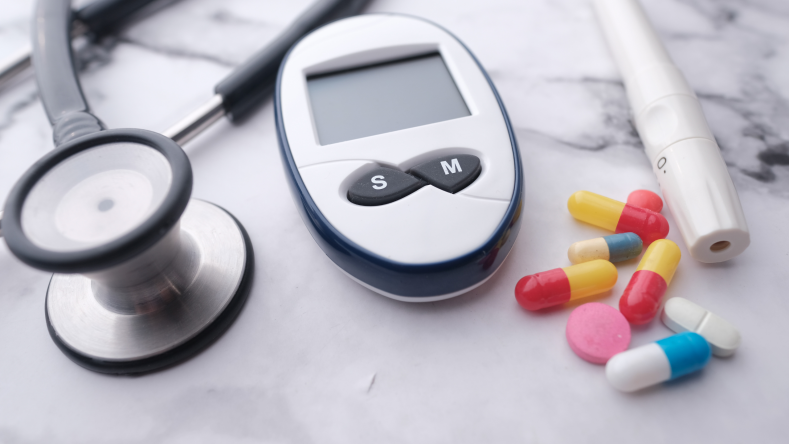How long does it take for semaglutide to suppress appetite?
This question is about GLP-1 & Weight Loss
Studies show that it can take up to 12 weeks for semaglutide to suppress appetite, lose weight, minimize cravings, increase satiety, alter food preferences, improve blood sugar, and reduce energy intake [ 1 2 3
However, semaglutide is only available through a doctor’s prescription. If you’re looking for some natural alternatives to semaglutide, you can try certain supplements like berberine vitamin D probiotics Elo Smart Protein cinnamon ALA
These GLP-1 supplements have been found to regulate blood glucose levels, alleviate insulin resistance, reduce inflammatory markers, stimulate insulin release, reduce serum lipid concentration, and positively impact insulin sensitivity [ 4 5 6 7 Learn more about GLP-1 supplements in this article.

People also ask:
References
Blundell, J., Finlayson, G., Axelsen, M., Flint, A., Gibbons, C., Kvist, T., & Hjerpsted, J. B. (2017). Effects of once-weekly semaglutide on appetite, energy intake, control of eating, food preference and body weight in subjects with obesity. Diabetes, obesity & metabolism, 19(9), 1242–1251.
https://doi.org/10.1111/dom.12932
Friedrichsen, M., Breitschaft, A., Tadayon, S., Wizert, A., & Skovgaard, D. (2021). The effect of semaglutide 2.4 mg once weekly on energy intake, appetite, control of eating, and gastric emptying in adults with obesity. Diabetes, Obesity and Metabolism, 23(3), 754–762.
https://doi.org/10.1111/dom.14280
Okamoto, A., Yokokawa, H., Nagamine, T., Fukuda, H., Hisaoka, T., & Naito, T. (2021). Efficacy and safety of semaglutide in glycemic control, body weight management, lipid profiles and other biomarkers among obese type 2 diabetes patients initiated or switched to semaglutide from other GLP-1 receptor agonists. Journal of diabetes and metabolic disorders, 20(2), 2121–2128.
https://doi.org/10.1007/s40200-021-00899-9
Cao, C., & Su, M. (2019). Effects of berberine on glucose-lipid metabolism, inflammatory factors and insulin resistance in patients with metabolic syndrome. Experimental and therapeutic medicine, 17(4), 3009–3014.
https://doi.org/10.3892/etm.2019.7295
Yousefi Rad, E., Djalali, M., Koohdani, F., Saboor-Yaraghi, A. A., Eshraghian, M. R., Javanbakht, M. H., Saboori, S., Zarei, M., & Hosseinzadeh-Attar, M. J. (2014). The Effects of Vitamin D Supplementation on Glucose Control and Insulin Resistance in Patients with Diabetes Type 2: A Randomized Clinical Trial Study. Iranian journal of public health, 43(12), 1651–1656.
Mazloom, Z., Yousefinejad, A., & Dabbaghmanesh, M. H. (2013). Effect of probiotics on lipid profile, glycemic control, insulin action, oxidative stress, and inflammatory markers in patients with type 2 diabetes: a clinical trial. Iranian journal of medical sciences, 38(1), 38–43.
Capece, U., Moffa, S., Improta, I., Di Giuseppe, G., Nista, E. C., Cefalo, C. M. A., Cinti, F., Pontecorvi, A., Gasbarrini, A., Giaccari, A., & Mezza, T. (2022). Alpha-Lipoic Acid and Glucose Metabolism: A Comprehensive Update on Biochemical and Therapeutic Features. Nutrients, 15(1), 18.
https://doi.org/10.3390/nu15010018
\n
"}}]}